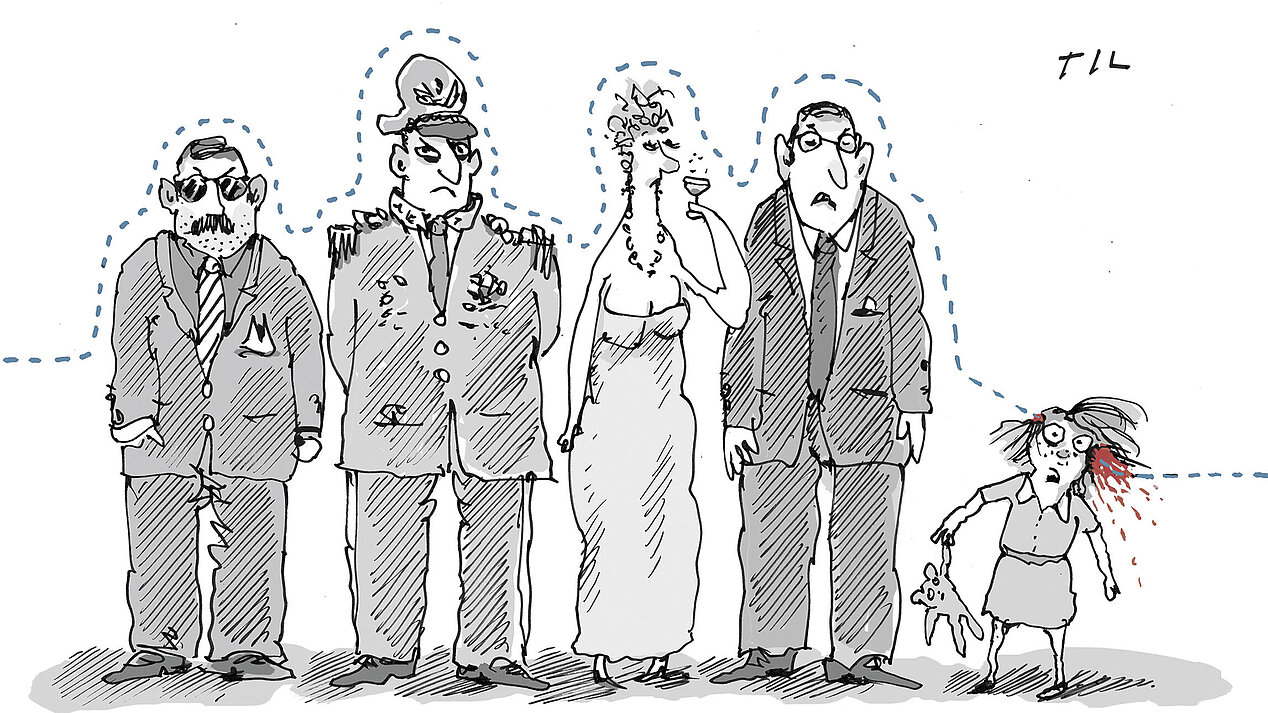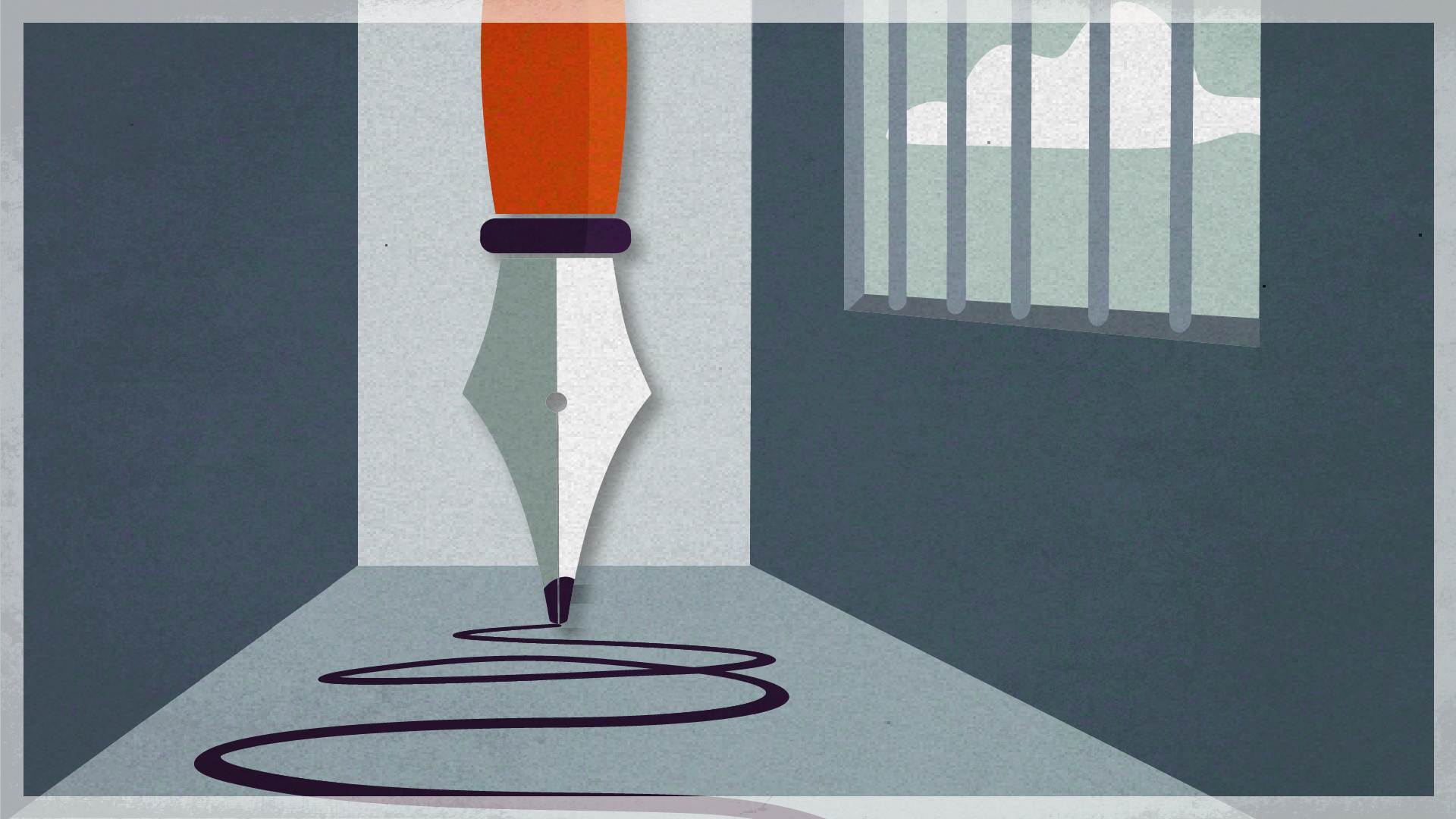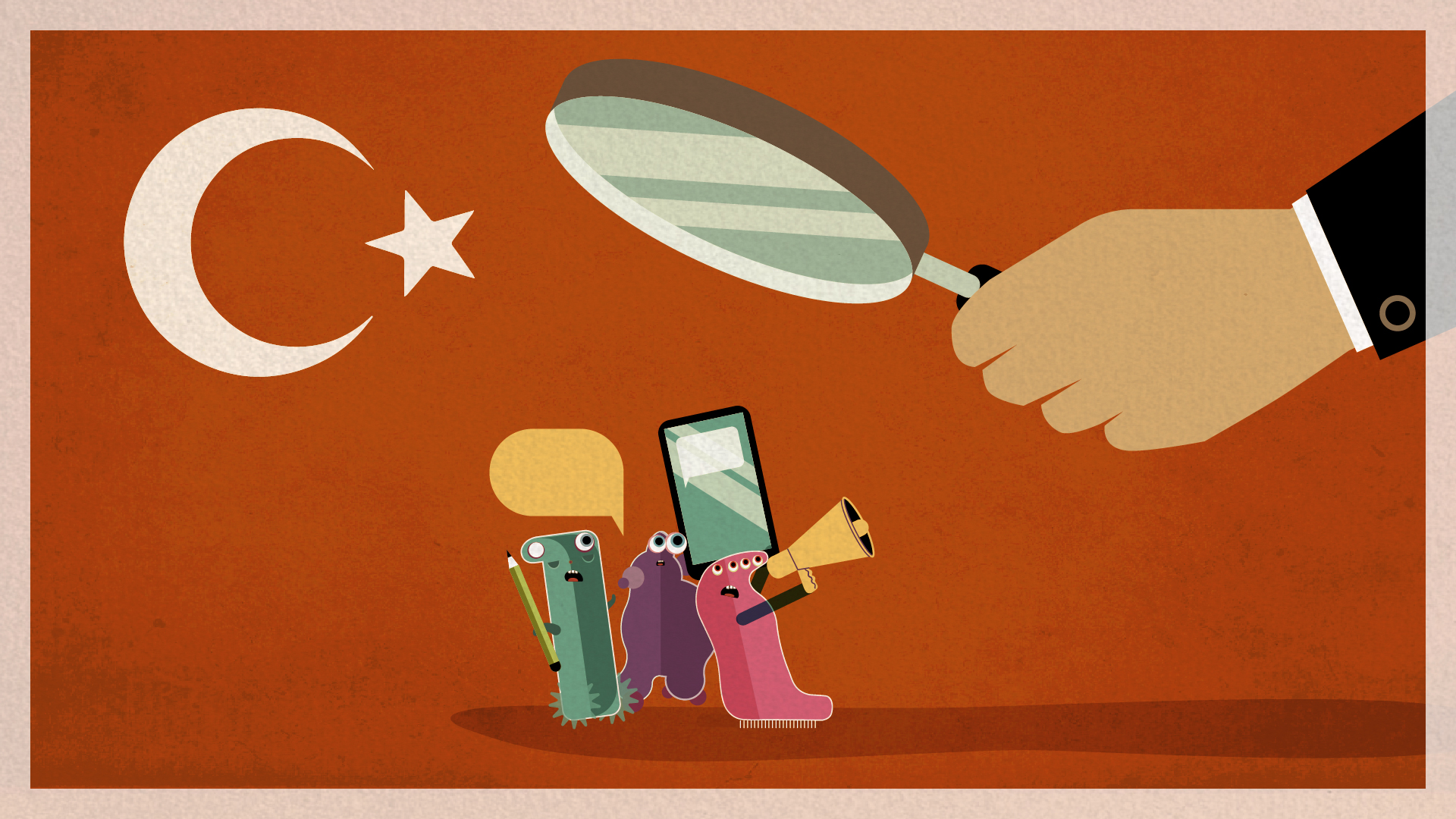In the summer of 2018, the ifa invited me go to Mexico City to give a lecture. I had the opportunity to participate as a German cartoonist in a lecture program organized by the international cartoonist organization Cartooning for Peace, based in Paris, and the Mexican cartoonist association Cartonclub. Cartonclub is the most important Latin American cartoonist association, regularly organizes meetings and exhibitions of international cartoonists, and so provides a space for socio-political challenges around the world. The topics of this year's series of events were migration and freedom of expression. Cartoonists were invited from the USA, Venezuela, Nicaragua, Cuba, Ecuador, Jordan, Tunisia and of course Mexico. Before the trip, I looked at the Facebook profiles of some of the invited colleagues and was surprised that two very conservative supporters of Donald Trump from America would be at the conference. A lively and controversial discussion was obviously intended.
Before the trip I and the other participants were asked by the organizers to draw a cartoon according to two specifications. All of us had to use the same caption for their work: 'The way of the bullet'. In addition, we should work a guided line from the left to the edge of the right into the drawing. Such exact specifications are rather uncommon, which is why I was quite curious to see what ideas the other cartoonists had and how such a strictly curated exhibition would work.
At the opening of the exhibition in the entrance hall of the daily newspaper El Universal, the sponsor of the event, all the participants met for the first time. The exhibition space was designed in such a way that at the entrance a large painted revolver welcomed the visitor. From its muzzle, a red line ran through the entire exhibition hall. The exhibited works were all presented in such a way that the obligatory line in the drawing was exactly at the height of this red guideline. All cartoons were thus connected in a marvellously grotesque way. I was surprised and really impressed by how well the exhibition worked thanks to the stylistic specification of a line on the drawing paper and the strict specification of theme. The termination of the red line formed a large painted cartridge at the end of the room. The pictorial language of many Latin American cartoons is very pathetic in style. Evidently, in view of the dramatic political situation, comedy is not exactly a priority for many cartoonists there. As more than 103 members of the press have been murdered in Mexico since the 2000, and the threat for professional writers and cartoonists is extremely high, I can understand that the cartoon in Latin America represents above all a protest and a contradiction, and also a longing for freedom and peace.
Cartoonists discuss drugs, Trump and digitalization in Mexico
The first discussion on migration, in which two US cartoonists, a cartoonist from Mexico and I sat on the podium, was quite disappointing. The conservative Trump supporter didn't dare break cover, the other US cartoonist apologized for his president, the Mexican cartoonist complained about the international media's lack of attention to his country in the face of the big problems with drug cartels, and I told them something about how the media scene in Germany is changing because of digitization. All this had little to do with the topic of migration, which was perhaps owing to the circumstance that none of the panellists was directly affected by it.
On the same day an appointment was scheduled in the afternoon at the German Embassy, which I was invited to accompany as a cartoonist by drawing. There would be a background discussion with ten journalists living in a protection program in Mexico City, supported by the then German ambassador, Viktor Elbling. In addition to the journalists, members of the embassy, a translator, and the spokesman of the German Embassy were present – and of course me to draw it. I know my abilities well and was from the start not really convinced I was ideally cast for the role of a draughtsman-transcriber.
Torture and persecution: a Mexican journalist is targeted by drug bosses and local politicians
What followed were the most gruesome tales of torture, mock executions and psychological terror I have ever heard from the lips of those affected. I sat there unable to make a mark on the paper, listened and took notes. The stories were so horrible that many present wept at the end of the meeting. Next to me sat Luis Martinez, a tall Acapulco journalist in his early forties with a soft, quiet voice, the last of the group to join the protection program. For years he had dug into a corrupt mayor and several local politicians who made common cause with the local police and the drug cartel in the area. Like the others, he was the victim of his profession. His story of torture and persecution was so terrible that I sat there helplessly, wondering how a human being could endure so much suffering. When asked why, after all this, he still takes action against drug lords and corrupt politicians, he replied that this was his profession and he knew nothing else. You sink into humility when you come from safe Germany and listen to such courageous people. And he, like everyone else at the table, is fortunate enough to be still alive, which cannot be said of many hundreds of other journalists in Mexico who have dared similar things.
A drawing style that feels right
As I listened, I became increasingly unclear as to what I should do as a cartoonist with this information. I knew I was supposed to draw something, which I couldn't do during the conversation because I was too shocked. My hands were shaking with horror and I had tears in my eyes. A wish was expressed again and again by everyone on the panel, one I remembered that Deniz Yücel also expressed when he was in a Turkish prison at the beginning of the year: Listen to the stories of the political prisoners so that they will not be forgotten.
Back at the hotel in the evening I then made a small drawing, which I gave to Luis Martinez the next day at a podium discussion as a humble, helpless gesture of compassion. It struck me that, having heard all these gruesome stories, I myself had fallen into a more pathetic style of drawing, which I would never have used in Germany. Here in Mexico, however, this style felt right.
The following day, when talking to cartoonists from Nicaragua, Mexico and Venezuela about how great the risk to life and limb is if you work in these countries for the freedom of the press and freedom of expression, I quickly realized that I, living and working in the Federal Republic of Germany, where I grew up, never had to fight for anything. On the one hand, this is an incredible gift for our generation of journalists and cartoonists; on the other hand, I don’t know if I would ever have had even a fraction of the strength and the courage to stand up for my ideals that a Luis Martinez has shown. If someone had asked me about my experiences with censorship in Germany, I could possibly have reported that Facebook once deleted one of my cartoons. Fortunately, nobody thought of asking me.
Translated from German by Jonathan Uhlaner





